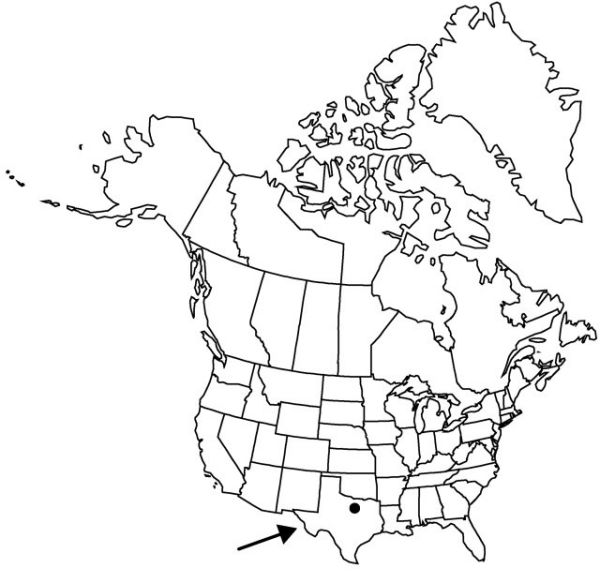Yucca necopina
Spring Fl. Dallas-Fort Worth, 91, 408. 1958.
Plants cespitose, forming small colonies of rosettes, acaulescent or caulescent; rosettes usually small, each with ca. 50–85 leaves. Stems erect, to 0.4 m. Leaf blade erect, proximal becoming reflexed, slightly twisted, plano-convex, widest near middle, 50–80 × (1.5–)2–4 cm, rigid, margins entire, filiferous, white, apex acicular. Inflorescences paniculate, racemose distally or entirely, beginning mostly beyond rosettes, ovoid, 50–120 cm, glabrous; proximal branches to 15 cm; bracts erect, distal reduced; peduncle 0.8–1.6 m, less than 2.5 cm diam. Flowers pendent; perianth globose; tepals greenish white, 4–4.5 1.5–3 cm; filaments 12–15 mm, shorter than pistil; pistil 1.5–3.8 cm; stigmas lobed. Fruits erect, capsular, dehiscent, not conspicuously constricted, dehiscence septicidal.
Phenology: Flowering spring.
Habitat: River terraces, deep sand
Elevation: 200–300 m
Distribution

Tex.
Discussion
Yucca necopina was originally described based only on plants from a single locality in Somervell County. Shinners’ sketchy description compared it with Y. arkansana, and he suggested that it might be a hybrid between Y. pallida and Y. arkansana. More recently, G. M. Diggs et al. (1999) reported new locations of Y. necopina from Hood, Parker, and Tarrant counties, and noted that molecular evidence provided to them by K. H. Clary supports its separate recognition.
Selected References
None.